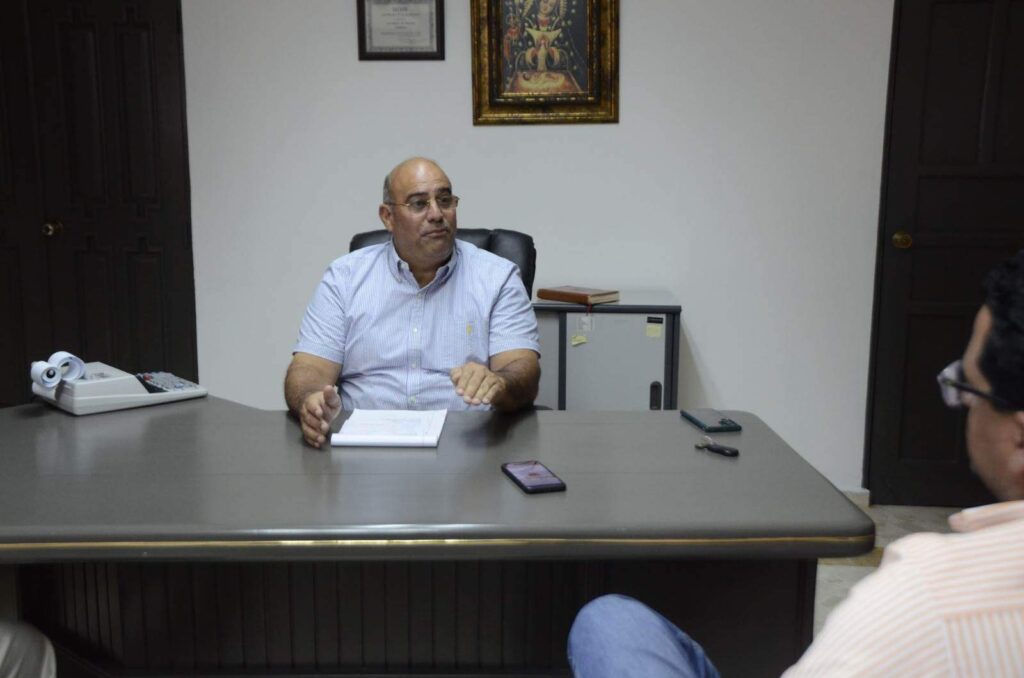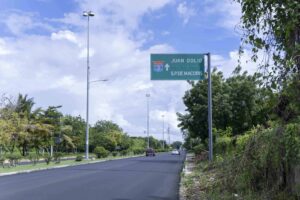
He sector agriculturalthe rebar and cement industry in the provinces of the northern region of the country, which depend largely on the hand of work Haitianare being negatively impacted by policies migratory of the Dominican Government, whose latest measure is the deportation each week of up to 10,000 of those foreigners with irregular status.
Entrepreneurs in these productive areas, especially agriculture, complain that after They invested time and resources in training foreigners, they now see themselves at risk of not having that workforce, which no Dominican is interested in replacing.
Many of the nationals haitianswho work in these sectors, have been detained and taken back to their country since October 2, the date on which the president of the Republic, Luis Abinader, ordered the measure.
Although they say they respect and agree with the provision established by the head of state, aware that there is an excess of migrants from the neighboring population, agricultural producers and housing developers understand that they must rethink the action and look for an alternative. , so that it does not continue to affect the agriculture and real estate development.
Operations have become a business
The representatives of the sector agricultural and of the construction They consider that the way in which the operations of the General Directorate of Migration (DGM) against the haitiansregardless of whether they are on a regular or irregular basis.
According to what they say, the raids against the undocumented have become a business with arrests the days of collection of the workers of the countryside and buildings.
They indicate that the military at the service of the state institution They are thrown in the early morning hours on the farms and boarding houses where the migrants reside, detaining everyone who is there, regardless of whether their immigration status is regularized or not.
They say that, surprisingly, people who are detained return two or three days after being detained. repatriatedsupposedly, after paying a bribery which ranges between RD$7 thousand and RD$15 thousand, depending on the destination of the foreigner in the national territory.
Marcos Rodríguez, president of the Monte de Sion Banana Association in the Pueblo Nuevo municipal district, in the Valverde province, says that on repeated occasions, banana businessmen must appear at the Fortaleza to manage the release of workers from their farms who have permits. labor.
“When they arrest one of our employees who are specialized in packing boxes of bananas, it delays the export process. We even run the risk of losing the ship where we send the product”President of the Monte de Sion Banana Association of Pueblo Nuevo
No less important, Rodríguez said that those errands They also cause failure in the order deliveries in the local market.
It’s a staff that takes time form
He president of the Monte de Sion Banana Association in the Pueblo Nuevo municipal district explained that the staff Haitian who works in the sector It is very difficult to replace, since they are trained in the preparation and packaging of products that are sent abroad, complying with strict quality standards.
In that preparation of staffproducers have invested time and resources, making the Dominican Republic one of the main countries exporters of banana towards Europe.
According to statistics managed by the Monte de Sion association, the Northwest Line, which covers the provinces of Montecristi, Dajabón, Santiago Rodríguez and Valverde, contributes more than 90% of the national production of banana. In addition, it exports an estimated 300,000 boxes of the product to European countries, generating 800 million dollars a year.
They propose AFP and TSS regularize the workers
Agricultural producers, as well as builders, advocated for the implementation of a labor regularization plan to foreigners who have been in the country for several years and who have an irregular immigration status.
They propose that the regularizations be carried out through the Pension Fund Administrators (AFP) and the Social Security Treasury (TSS), in order to guarantee the labor rights of the workersbe dominicans or foreigners.
They also suggest that the outsiders receive permits of work by area or provinces where they carry out productive activities.
The representatives of these sectors assure that their objective is to continue exporting bananaharvesting rice, producing livestock and developing the cities of Cibaeña with the efficiency that has been done so far, thanks to the hand of work Haitian.
They warn that if they continue with the deportations of the citizens of the neighboring nation who come to work, the Dominican Republic will be left without hand of work.
Prior to the immigration plan of the Dominican Government, the sector banana plantation had 25 thousand workers haitiansof which a significant number have decided to return voluntarily due to fear of being mistreated and sent to Haiti and another part have been deported.
The dominicans They prefer the motoconcho
Producers would like to have workers dominicansHowever, they affirm that Creole nationals are not interested in filling these vacancies because they are not employed in that type of work.
“We overpay Dominicans with salaries that almost double the minimum wage established by the authorities and even in this way we fail to motivate them.”Former president of the Dominican National Federation of Rice Producers (Fenarroz).
He pointed out that the staff native He prefers motoconcho, selling lottery numbers or doing an activity that doesn’t require much effort.
Mechanization
Another option to change the workforce Haitian would be to mechanize productive activities, but, according to Iván Tió, the only sector of the agricultural The one who can materialize this action is the rice farmer.

He states that this option requires a large investment“which we cannot assume without the helping hand of the government.”
Details that they are also needed financing mechanisms to modernize and increase the use of technology on farms.
Sector rancherother sector affected
He sector rancher it’s a sector more than has been impacted by the Dominican immigration measure. According to its representatives, 95% of the hand of work is Haitian.
“For both milking and work on the farm we use Haitian workers, since Dominicans do not do that work”livestock producer
The construction
On his side, the president of the Association of Cibao Housing Developers and Builders (Aprocovici), Sandy Rodríguez Gutiérrez, added that in the area of the construction the labors that demand force are being carried out by migrants, mostly with irregular immigration status.
He stated that he has received information from some of the members of the entity about the absenteeism of the workers haitians in the projects construction in Santiago and other towns in Cibao due to the process of deportation.
From Aprocovici they agree on the proposal of the producers of the agricultural about regularizing the hand of work that is already in the country.
These sectors hope that the Government will weigh the flexibility of the measures migratorysince they constitute the long-term decline of such important economic activities.



